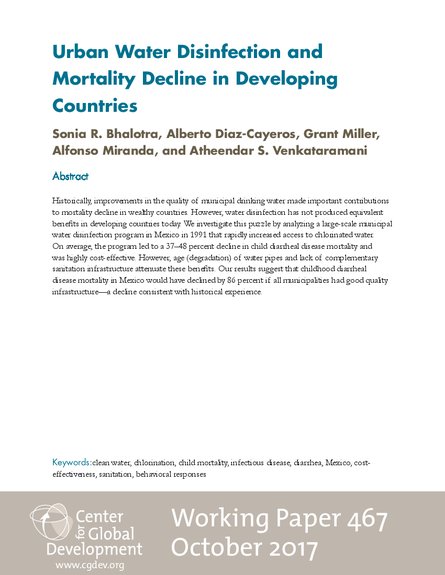
Historically, improvements in the quality of municipal drinking water made important contributions to mortality decline in wealthy countries. However, water disinfection has not produced equivalent benefits in developing countries today. We investigate this puzzle by analyzing a large-scale municipal water disinfection program in Mexico in 1991 that rapidly increased access to chlorinated water. On average, the program led to a 37–48 percent decline in child diarrheal disease mortality and was highly cost-effective. However, age (degradation) of water pipes and lack of complementary sanitation infrastructure attenuate these benefits. Our results suggest that childhood diarrheal disease mortality in Mexico would have declined by 86 percent if all municipalities had good quality infrastructure—a decline consistent with historical experience.
Links
Resource collections
- UN Habitat - Urban Response Collection
- Urban Response - Urban Crisis Preparedness and Risk Reduction
- Urban Response Collection - Community Engagement and Social Cohesion
- Urban Response Collection - Economic Recovery
- Urban Response Collection - Environment and Climate Change
- Urban Response Collection - Housing, Land and Property
- Urban Response Collection - Urban Crisis Response, Recovery and Reconstruction
- Urban Response Collection - Urban Resilience